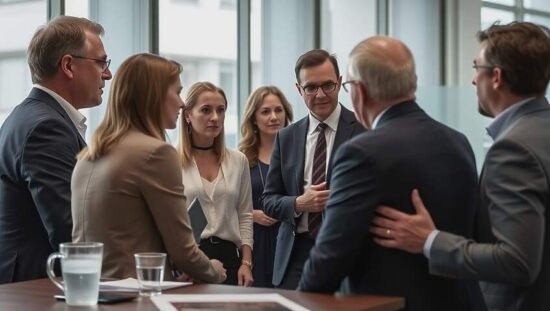Germany’s business leaders are facing increasing pressure to actively counter the rising tide of right-wing populism, according to prominent ethicist and business professor Markus Scholz. In a recent interview with “Der Spiegel”, Scholz argued that a separation between the political and economic spheres is increasingly untenable, placing a moral obligation on corporate leaders to defend democratic values and individual freedoms.
Scholz’s remarks are further elaborated in his new book, which serves as a stark warning against potential government participation by the Alternative for Germany (AfD). He contends that populist ideologies foster a dangerous “friend-enemy” worldview, systematically eroding the foundations of a functioning state. “Populists curtail the rule of law, engage in patronage and cronyism, restrict media freedom, suppress civil society and discredit the opposition” Scholz states, arguing that such conditions are fundamentally detrimental to sustainable economic growth. He points to studies demonstrating that economies under populist rule experience a significant and protracted slowdown, with potential GDP losses of up to ten percent within a fifteen-year period compared to democratic counterparts.
Beyond mere observation, Scholz proposes a proactive strategy for corporate engagement. He calls on managers and works councils to initiate educational workshops focused on the merits of liberal democracy, emphasizing that these should be conducted in a manner that avoids explicit endorsements of political parties or direct warnings against specific groups like the AfD. This nuanced approach, he believes, is crucial to fostering a broader understanding of democratic principles within the workforce.
However, Scholz acknowledges that such initiatives alone are unlikely to be sufficient. He advocates for strengthened collaboration between corporate management and employee representatives, particularly as the AfD actively seeks to infiltrate and influence labor organizations. The challenge now lies in whether German businesses will heed his call to action and actively defend the democratic values underpinning their operations, or risk contributing to a future economic and societal decline. The ongoing debate highlights a widening gap between economic prosperity and political stability and places a significant burden on Germany’s business community to safeguard the nation’s future.





